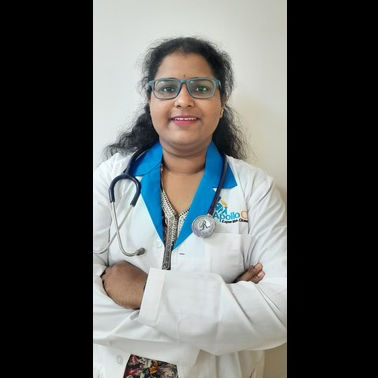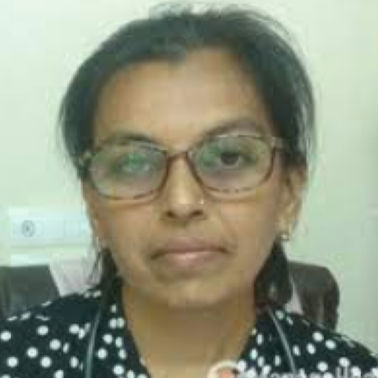Vaginal Cancer Symptoms to Know
Learn the warning signs of vaginal cancer, including abnormal bleeding, discharge, and pelvic pain. Early detection improves outcomes—know when to seek medical help.


Vaginal cancer is a rare but serious condition that affects women. While it may not be as commonly discussed as other cancers, being aware of its symptoms can help in early detection and treatment. If you or someone you know is experiencing unusual changes in vaginal health, understanding the signs can make a big difference.
In this article, we’ll discuss the symptoms, causes, and ways to manage vaginal cancer in simple, easy-to-understand terms.
What Is Vaginal Cancer?
Vaginal cancer occurs when abnormal cells grow uncontrollably in the vagina. It is rare, accounting for only about 1-2% of cancers in women. Early detection is crucial for successful treatment, so knowing the symptoms can help you seek medical advice promptly.
Common Symptoms of Vaginal Cancer
Many symptoms of vaginal cancer may resemble other less serious conditions, but if they persist, it’s important to consult a doctor. Here are the key signs to watch for:
1. Abnormal Vaginal Bleeding
- Bleeding after menopause (when periods have stopped).
- Bleeding between periods.
- Bleeding after sexual intercourse.
2. Unusual Vaginal Discharge
- Watery, foul-smelling, or blood-tinged discharge.
3. Pain in the Pelvic Area
- Persistent pain in the lower abdomen or pelvis.
- Pain during sexual intercourse.
4. A Lump or Mass in the Vagina
- A noticeable growth or sore inside the vagina.
5. Painful Urination
- Burning or discomfort while urinating.
- Frequent urination without infection.
6. Constipation or Pain During Bowel Movements
- If the cancer affects nearby tissues, it may cause bowel-related discomfort.
If you experience any of these symptoms for more than a few weeks, it’s important to see a doctor for further evaluation.
What Causes Vaginal Cancer?
While the exact cause isn’t always clear, certain factors increase the risk:
- HPV (Human Papillomavirus) Infection – A sexually transmitted infection linked to vaginal and cervical cancers.
- Age – Most cases occur in women over 60.
- Previous Cervical Cancer – Women who have had cervical cancer may have a higher risk.
- Smoking – Tobacco use increases the risk of many cancers, including vaginal cancer.
- DES Exposure – Women whose mothers took the drug DES (diethylstilbestrol) during pregnancy have a higher risk.
Consult Top Gynecologists
How Is Vaginal Cancer Diagnosed?
If you have symptoms, your doctor may recommend:
- Pelvic Exam – To check for lumps or abnormalities.
- Pap Smear/HPV Test – To detect abnormal cells or HPV infection.
- Biopsy – A small tissue sample is taken to confirm cancer.
- Imaging Tests (MRI, CT Scan, PET Scan) – To determine the cancer’s stage and spread.
Early diagnosis improves treatment success, so don’t ignore persistent symptoms.
Treatment Options for Vaginal Cancer
Treatment depends on the cancer’s stage and overall health. Common approaches include:
- Surgery – Removal of cancerous tissue.
- Radiation Therapy – Uses high-energy rays to kill cancer cells.
- Chemotherapy – Drugs to destroy cancer cells, often used in advanced cases.
Your doctor will guide you on the best treatment plan.
How Can You Lower Your Risk?
While not all cases can be prevented, these steps may help reduce risk:
- Get the HPV Vaccine – Protects against high-risk HPV strains.
- Regular Pap Smears & Pelvic Exams – Helps detect precancerous changes early.
- Quit Smoking – Reduces cancer risk.
- Practice Safe Sex – Lowers HPV and other infection risks.
When to See a Doctor?
If you notice any persistent symptoms like unusual bleeding, pain, or discharge, don’t hesitate to seek medical advice. Early detection saves lives.
Need Help?
If you're concerned about symptoms or need a consultation, you can book an appointment with an expert gynecologist through Apollo 24|7. Early screening and timely treatment can make all the difference.
Final Thoughts
Vaginal cancer is rare but serious. Knowing the symptoms and risk factors can help you stay proactive about your health. If something feels off, trust your instincts and get checked. Your well-being matters!
Consult Top Gynecologists
Consult Top Gynecologists

Dr. Sreeparna Roy
Obstetrician and Gynaecologist
8 Years • MBBS , MS (OBSTETRICS & GYNAECOLOGY), Fellowship in Infertility, Endoscopy & Ultrasonography), Fellowship in Laparoscopy & Hysteroscopy,DRM
Barasat
Diab-Eat-Ease, Barasat

Dr. Neetu Singh
Obstetrician and Gynaecologist
19 Years • MBBS , MD (Obstetrics & Gynaecology)
Ghaziabad
Mother And Kidz Clinic, Ghaziabad
Dr. Sambana Sai Sri Neeraja
Obstetrician and Gynaecologist
6 Years • MBBS,MS (Obstetrics and gynaecology)
Bengaluru
Apollo Clinic, Sarjapur Road, Bengaluru

Dr. Sambana Sai Sri Neeraja
Obstetrician and Gynaecologist
6 Years • MBBS,MS (Obstetrics and gynaecology)
Bengaluru
Apollo Clinic, Sarjapur Road, Bengaluru

Dr. Mona Yadav
Obstetrician and Gynaecologist
19 Years • MBBS, MD (Obstetrics & Gynaecology)
Dombivli
Nulife multispeciality, Dombivli
Consult Top Gynecologists

Dr. Sreeparna Roy
Obstetrician and Gynaecologist
8 Years • MBBS , MS (OBSTETRICS & GYNAECOLOGY), Fellowship in Infertility, Endoscopy & Ultrasonography), Fellowship in Laparoscopy & Hysteroscopy,DRM
Barasat
Diab-Eat-Ease, Barasat

Dr. Neetu Singh
Obstetrician and Gynaecologist
19 Years • MBBS , MD (Obstetrics & Gynaecology)
Ghaziabad
Mother And Kidz Clinic, Ghaziabad
Dr. Sambana Sai Sri Neeraja
Obstetrician and Gynaecologist
6 Years • MBBS,MS (Obstetrics and gynaecology)
Bengaluru
Apollo Clinic, Sarjapur Road, Bengaluru

Dr. Sambana Sai Sri Neeraja
Obstetrician and Gynaecologist
6 Years • MBBS,MS (Obstetrics and gynaecology)
Bengaluru
Apollo Clinic, Sarjapur Road, Bengaluru

Dr. Mona Yadav
Obstetrician and Gynaecologist
19 Years • MBBS, MD (Obstetrics & Gynaecology)
Dombivli
Nulife multispeciality, Dombivli

